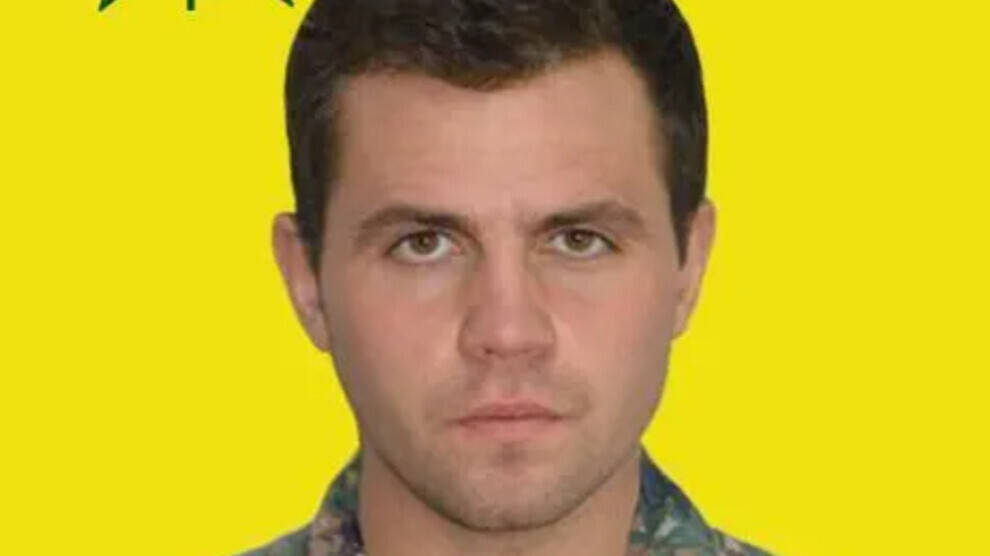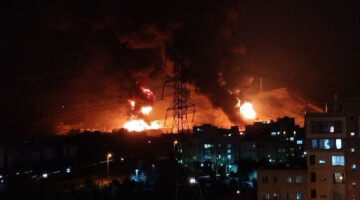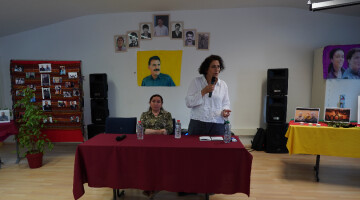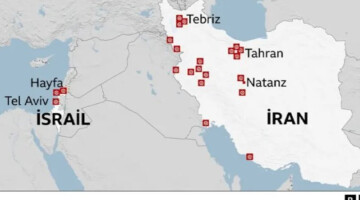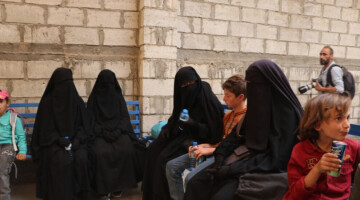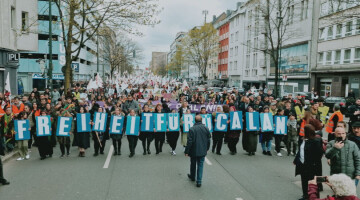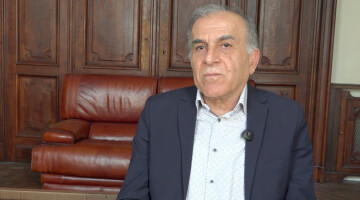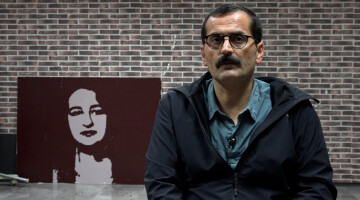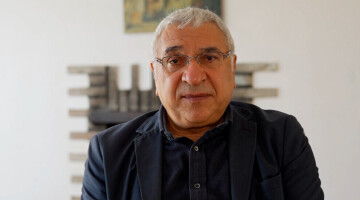He was martyred while fighting for the right of every person to live freely and safely in his own country under a free government, embrace his own culture, language and religion, read and speak freely, to make music, enjoy the arts, appreciate history, or play football without fear of a brutal crackdown.
Konstandinos Erik Scurfield was born in 1989 in North Yorkshire, United Kingdom. He was the eldest son of Vasiliki and Chris and had two brothers. He grew up in the town of Royston near Barnsley and had strong social awareness from a young age. He was affectionately called Kosta by his friends and family. Kosta developed an independent and strong will from an early age. His mother Vasiliki said: “When Kosta set his mind on doing something, he wouldn't give up until he made it happen; he was so stubborn, especially as he got older.” Although he wasn't very talented academically, he was a bright student and finished school easily. He had a creative mind for drawing and a passion for performance arts. After finishing school, he attended a university course in Performing Arts in Nottingham and later spent a summer learning acrobatic stunts in a circus and even had a small role in the popular British TV series Hollyoaks.
HE ALWAYS WANTED TO HELP OTHERS
He was always looking for ways to make a difference in the world, to help those who were less fortunate than himself. At the age of 14, he travelled with a group to Malealea, South Africa, to participate in environmental work. He helped plant trees and clean local water tanks there. He and his colleagues raised over £40,000 for their campaign.
After graduating from university, he decided to make a long trip to Europe and went to Greece, where he was eligible for military service since he was of Greek descent. He embarked on an epic journey with only one pair of clothing, a small amount of money, a pair of shoes and a sleeping bag. His mother believed that he saw the journey as an opportunity to reconsider his priorities. He wanted to work with organizations that specialized in mine clearance but found out that many of these organizations were looking for volunteers with military experience. After giving his last money to a beggar in Italy and celebrating his 21st birthday in the Alps, he went to Greece, where he spent 6 months in the army.
HE DID NOT ACCEPT TOLERANCE TO ISIS
After returning to the UK, he joined the 45 Commando Royal Marines and served as an aidman. Although his family doubted that this lovely, sensitive and creative young man would find himself in the strict disciplinary life of the military, Kosta succeeded in his new job. Despite being happy and successful in his new life, he gradually became disappointed by the inaction of the British government against the rise of ISIS and its terror activities in Syria and Iraq. After asking his commander whether the British army would join the fight against ISIS, he was replied "No".
His mother, Vasiliki, described his feelings back then: “He was very angry that we were doing nothing while innocent people were being killed. He couldn't understand it when his commander replied no to him. When he was young, he kept saying, 'Let's save the Kurds from Saddam Hussein' or 'Let's save all women in Afghanistan from the Taliban'. He was really disappointed when he was told, 'Oh no, we're not going to Syria.' He was a kid who didn't expect others to do things for him: “If you don't get what you want, you move your arse and do something about it.”
KURDS ARE KILLED AND NOBODY DOES ANYTHING
Koska told her mother: “Mom, I want to go to Syria and help. The Kurds are being killed and our government is doing nothing”. Kosta once again asked his commanders with the start of the air support of the coalition forces when ISIS carried out a massacre against the Yazidis in Shengal. He stepped into action after receiving another 'No'. He was arrested by the British army on his first attempt to travel to Syria. He told British authorities that he was going to Syria one way or another and it would be better if they dismissed him. When British authorities finally agreed, he resigned from military service in September 2014. He contacted the YPG within a few weeks and set off for the Middle East.
HE WENT TO SHENGAL
After arriving in Iraq, he joined his Kurdish and internationalist comrades and went directly to the battle front in Shengal (Sinjar), where he witnessed fierce clashes against ISIS. He changed his name to Kemal. With his military experience and skills as an aidman, he was a prominent member of the Democratic Nation troops. Comrade Kemal was deeply committed to the cause of revolution and the fight against ISIS. He now had the chance to make a real difference in the world and risked his life to protect the Yazidi people in Shengal against the massacre and genocide of ISIS.
In his last Facebook post before his leave for Iraq, he quoted German anti-fascist Sophie Scholl, who was executed by the Nazis for her anti-war resistance: “How can we expect righteousness to prevail when there is hardly anyone willing to give himself up individually to a righteous cause. Such a fine, sunny day, and I have to go, but what does my death matter, if through us, thousands of people are awakened and stirred to action?”
FELLOW FIGHTERS IN SHENGAL
His comrades from the Shengal front remember him as follows: “We were under constant fire for a month. We were sleeping inside bombed buildings, 50 meters away from the ISIS line, amid the sound of gunfire. We were advancing inside tunnels and hiding whenever a mortar shell was dropped. ISIS attacks were carried out usually at night. We were outnumbered, but we managed to repel them. We knew we would defeat them if they pushed further, so we decided not to allow anyone to be taken prisoner. Whatever happened, we would die fighting together. We protected our line during the clashes. Kosta built a small gym to keep us fit and cooked for us. I was rescued by comrade Kemal during a clash. A bullet hit me as we were under fire. While I struggled to stay conscious, Kosta and an American fellow fighter named Cudi stopped the bleeding. They carried me 300 meters on a stretcher under constant fire. I wouldn't be here without them.”
TRANSITION TO ROJAVA
After the victory against ISIS on the Shengal front, comrade Kemal went to Rojava and took part in the military operations against ISIS there. As a skilled fighter, aidman and natural leader, he was indispensable to his military unit, saving many more fellow fighters. During the campaign to liberate Til Hemis, east of Qamishlo and Heseke, comrade Kemal was in a convoy of vehicles carrying injured fighters and refugees in the village of Xizela. The convoy came under intense fire by ISIS. Konstandinos, also known as the British Kemal, was martyred on March 2, 2015, following a long skirmish with ISIS. Keeping his promise, he sacrificed his life for his comrades, the people of Rojava and the cause of the struggle he believed in.
VIDEO SHOT 2 DAYS BEFORE HE WAS MARTYRED
In a video shot two days before he was martyred, he said that he felt happier than ever in Kurdistan as he and his comrades were passing through bombed buildings. He was content with his life as a soldier and felt that fighting was his calling. He was angry with the British government and other NATO governments for causing the war and forcing the public to face the consequences. He expressed his anger by saying that “there are 500 British soldiers fighting for ISIS and our government is happy that we are not doing anything.”
A HERO OF HUMANITY
Martyr Kemal's body was handed over to his family after a ceremony on the Syria-Iraq border, attended by hundreds of people. He was buried in England, where he was born. Martyr Kemal became not only a Kurdish hero, but also a hero of humanity and went down in history.
Martyr Kemal's family continues to promote the cause of their son, the cause of the Kurdish people and their democratic revolution and support the families of other British martyrs of the Rojava revolution. Martyr Kemal's parents, Vasiliki and Chris, said; “His fire may have burned for a short time, but he shone with love, courage, faith and honour. We are proud of him.”
A military academy of the People's Defence Units (YPG) is named after Martyr Kemal to pay tribute to his great contribution and sacrifices during the struggle.

